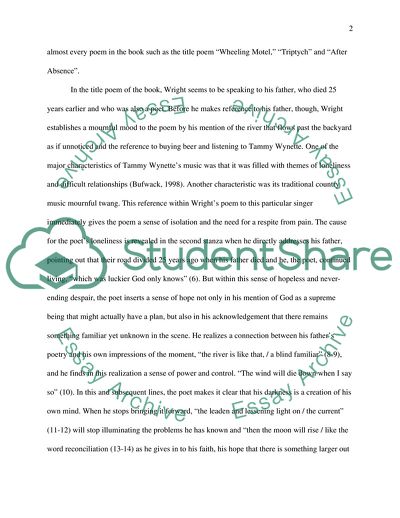Wheeling Motel by Franz Wright Book Report/Review Example | Topics and Well Written Essays - 1750 words - 4. https://studentshare.org/literature/1745920-poetry
Wheeling Motel by Franz Wright Book Report/Review Example | Topics and Well Written Essays - 1750 Words - 4. https://studentshare.org/literature/1745920-poetry.


